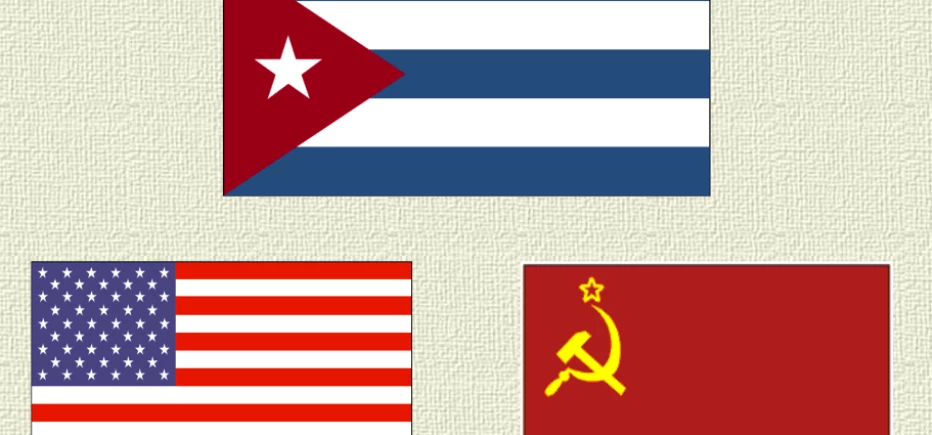
Partner Article
Businesses can learn from the Cuban Missile Crisis
The 1962 Cuban missile crisis has a direct link with Workplace Mediation.
What lessons are there to be learned by organisations?
At the height of the ’cold war’ October 1962 was the month that saw the world on the edge of a nuclear war, which thankfully, was averted …. just.
Nuclear missiles had been secretly deployed by the Soviet Union on the island of Cuba, a friendly country, 90 miles from the Florida coast, which left the US feeling vulnerable, as these missiles were within striking distance of most US cities.
An already confused situation was being compounded by the US President, John F Kennedy, receiving conflicting messages from the Soviet Premier, Nikita Kruschev.
The crisis lasted for thirteen days in which the world teetered on the brink of nuclear armageddon.
The DEFCON (Defence Condition) went from normal peace-time [5] to DEFCON [2] - high readiness for war; armed forces ready to deploy in six hours.
However, as a consequence of urgent secret talks between the US President’s brother; US Attorney General, Robert Kennedy, the US peace envoy, the United Nations Acting Secretary General, U Thant and the Soviet Ambassador, Dobrynin, (the mediators) the Soviet nuclear missiles were removed from Cuba on the 28th October 1962. In return the US nuclear missiles, which were within striking distance of most Soviet Union cities, were removed from Turkey.
Negotiation climax:
Letter from Chairman Kruschev to President Kennedy, October 27th 1962:
It is good, Mr President, that you have agreed to have our representatives meet and begin talks, apparently through the mediation of U Thant, Acting Secretary General of the United Nations. Consequently, he to some degree, has assumed the role of a mediator and we consider that he will be able to cope with his responsible mission, provided, of course, that each party drawn into this controversy displays good will.
A nuclear war between the superpowers had been averted through mediation. Such a war would have had an estimated 100 million dead on both sides.
Soviet aims and objectives:
- The Soviets had the US missiles removed from Turkey
- The Soviets had a promise from the US not to invade Cuba
- Premier Kruschev’s reputation was enhanced in the Soviet Union (albeit temporarily)
US aims and objectives:
- The US had the Soviet missiles removed from Cuba
- President Kennedy’s reputation was enhanced in the US and elsewhere
- A telephone ‘hot-line’ was, for the first time, established between Washington and Moscow to avoid any future misunderstandings
Both sides had the objective of making their countries a safer place to live in, this was to a certain degree, achieved.
A clear demonstration of a mediated win/win by having multiple outcomes which were considered by the opposing parties, at the time, to be positive and successful. This was achieved through the involvement of third parties and the needs and wants of both protagonists in the dispute had been comprehensively met.
In any successful mediation there are no losers, only winners.
If world superpowers were able to avoid a nuclear war by mediation, then it shouldn’t be too difficult for organisations to embrace mediation as an early intervention in resolving many workplace disputes and conflicts.
Many organisations traditionally use established adversarial procedures to resolve disputes. Quite often these only serve to make matters worse.
Regrettably, workplace mediation is still woefully under-used by many organisations.
However, the more enlightened organisations are beginning to see the tremendous benefits of the early implementation of workplace mediation. Why not join them?
Workplace mediation has countless benefits, including:
- Mediation can be organised quickly
- A skilled mediator facilitates the disputants themselves to reach a mutually satisfactory, sustainable agreement
- The cost of mediation is minimal compared to the more formal procedures that often lead to expensive litigation
- Mediated settlements are longer lasting than other resolutions
- Mediation produces a happier, healthier and therefore more productive workplace
- Mediation is informal, voluntary and confidential
- Mediators are impartial and nuetral
The next time you have a dispute or some conflict in the workplace, like President Kennedy & Premier Kruschev did in 1962: Implement early mediation, before things get out of hand.
This was posted in Bdaily's Members' News section by The Business Medic .
Enjoy the read? Get Bdaily delivered.
Sign up to receive our daily bulletin, sent to your inbox, for free.








 Raising the bar to boost North East growth
Raising the bar to boost North East growth
 Navigating the messy middle of business growth
Navigating the messy middle of business growth
 We must make it easier to hire young people
We must make it easier to hire young people
 Why community-based care is key to NHS' future
Why community-based care is key to NHS' future
 Culture, confidence and creativity in the North East
Culture, confidence and creativity in the North East
 Putting in the groundwork to boost skills
Putting in the groundwork to boost skills
 £100,000 milestone drives forward STEM work
£100,000 milestone drives forward STEM work
 Restoring confidence for the economic road ahead
Restoring confidence for the economic road ahead
 Ready to scale? Buy-and-build offers opportunity
Ready to scale? Buy-and-build offers opportunity
 When will our regional economy grow?
When will our regional economy grow?
 Creating a thriving North East construction sector
Creating a thriving North East construction sector
 Why investors are still backing the North East
Why investors are still backing the North East